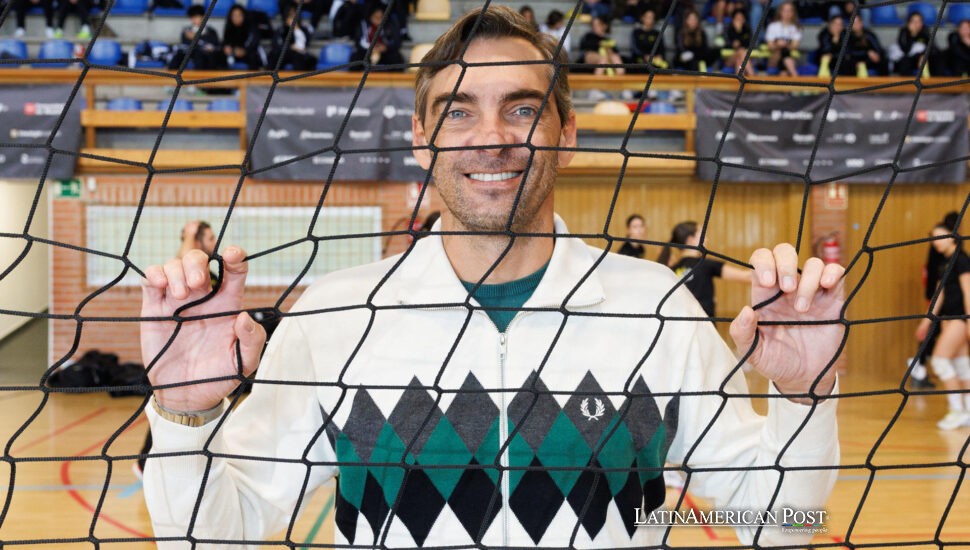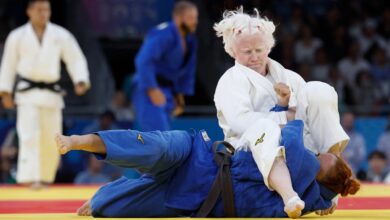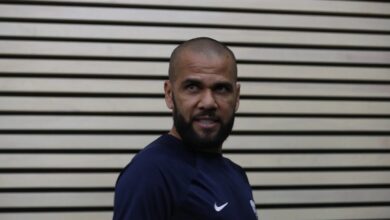Brazilian Volleyball Legend Giba Champions Youth and Growth

Gilberto Amauri Godoy Filho, better known as Giba, is a revered figure in the realm of Brazilian volleyball, boasting an unmatched record of three World Championships and three Olympic medals, and now serves as a global ambassador for the sport.
From Unparalleled Success to Global Promotion
Gilberto Amauri Godoy Filho, universally celebrated as Giba, holds a place among the greatest icons of Brazilian sports. Born in 1976, he rose to prominence as an indispensable member of what many call the “golden generation” of Brazilian volleyball. His trophy-laden career features three World Championships and three Olympic medals—gold at Athens 2004, silver at Beijing 2008, and silver at London 2012—as well as eight World League triumphs.
Yet Giba’s impact extends far beyond the court. After retiring in 2014, he began a new chapter dedicated to the development and promotion of volleyball worldwide. Today, he serves as an “ambassador” for the International Volleyball Federation (FIVB), traveling to countless destinations to elevate a sport he describes as “the most family-friendly game in the world.”
“When I think about what volleyball has given me, I realize I owe it a debt I can never fully repay,” Giba told EFE in an interview this week at the inaugural Madcup volleyball tournament in Las Rozas (Madrid). The event brought together over fifty youth teams—players up to 16 years old—showcasing both the burgeoning enthusiasm for the game and Giba’s commitment to nurturing that passion.
Guiding the Next Generation
A central focus of Giba’s mission is helping nations tap into the long-term benefits of volleyball development. “For a team to become internationally competitive, the groundwork must start with children,” he explained to EFE, emphasizing that meaningful progress “takes time, maybe eight years or more, much like it did in Brazil.”
Spain offers a relevant case study. Spain achieved the highest position in European volleyball when they secured the EuroVolley championship in 2007. According to Giba, this achievement represented a potential turning point for establishing a lasting global volleyball presence. However, the momentum waned soon after. In the past two years, he observed the Spanish Federation doing remarkable work to revive volleyball while emphasizing the importance of ongoing youth programs.
Giba’s advocacy for a strong grassroots system mirrors the journey of Brazilian volleyball. “We started heavily investing in the youth in 1975, and our first big taste of international success came in 1992,” he recalled. It is a process that involves steps. You must encourage children to participate in the game, hold their attention, and demonstrate that the sport provides possibilities for the future. Investments in youth equate to investments in the nation’s athletic future.
Giba’s progression from accomplished player to representative on a global scale highlights that tactical leadership has the same importance as talent demonstrated on the court. “The management side helps you win. A good organizational structure can do wonders,” he said, pointing to how political decisions in Brazil—such as the removal of mandatory physical education in schools—have diminished volleyball’s reach among children. “There’s still tremendous potential, but you have to keep kids playing and keep them inspired.”
For two years, Giba worked in Morocco, assisting African nations in developing local talent and competitive leagues. He firmly believes that volleyball’s growth trajectory is strong worldwide, even in places where the sport traditionally receives little attention. “Volleyball keeps expanding, and we see countries all around the world improving,” he declared. “When the family element is there—parents bringing their children to matches—it creates an environment unlike any other.”
Looking Ahead—Politics, Family, and Future Plans
Despite his legendary status, Giba admits coaching the Brazilian national team is not on his wish list—at least for now. “Never say never,” he told EFE, “but the world is a big place, and I want to do something broader for the sport. I studied marketing and sports administration to learn how to help volleyball thrive. Working with children is my favorite part because they’re pure, they listen, and they’re eager to grow.”
When asked about stepping into politics—an avenue some celebrated Brazilian athletes have pursued—Giba is unequivocal: “I’ve had multiple offers, but in Brazil, once you become a politician, your athletic legacy disappears. I don’t want to erase what I’ve built as Giba, the volleyball player. If my state governor calls and says, ‘Let’s do a youth sports program,’ I’ll help without expecting money in return. I do it for the kids.”
Looking to the future, Giba remains centered on his core mission. “I want to stay committed to the sport. Volleyball gave me everything: knowledge, friendships, discipline, and a sense of teamwork. I feel it in my heart that I owe something back,” he said earnestly.
In his youth, Giba once imagined following his father’s footsteps and working in the equestrian sector, even dreaming of becoming a veterinarian. “But once I picked up that volleyball at 13, I couldn’t imagine doing anything else,” he reminisced. Now, with two children of his own, he respects their choices, even if they diverge from his own path. “My daughter played for five years, but she found other passions. My son, who’s 16, is in Módena (Italy) playing football at the under-17 level. I’m just happy they’re active and pursuing what they love.”
Giba is a steadfast believer in the power of living legends to inspire future generations. He often cites Poland as a prime example of a nation that venerates its sports heroes in a way that fuels continuous fan engagement and athletic aspiration. “You need to take care of living idols, spotlight them, and let kids see how far they can go. In many countries, we don’t honor our heroes enough, whether in volleyball, basketball, or handball,” he observed.
Also Read: South American Football Cup: Violence, Upsets, Surprising Twists
Giba’s long-lasting impact comes not just from the medals plus trophies he won during his successful time playing, but also from the influence he has on younger players. His constant excitement about sport, along with his willingness to give time and effort so it can grow, guarantees his passion will pass to the next generation. As he succinctly puts it, “I feel like I have a responsibility to show kids how many doors can open for them if they believe in the power of volleyball.”




